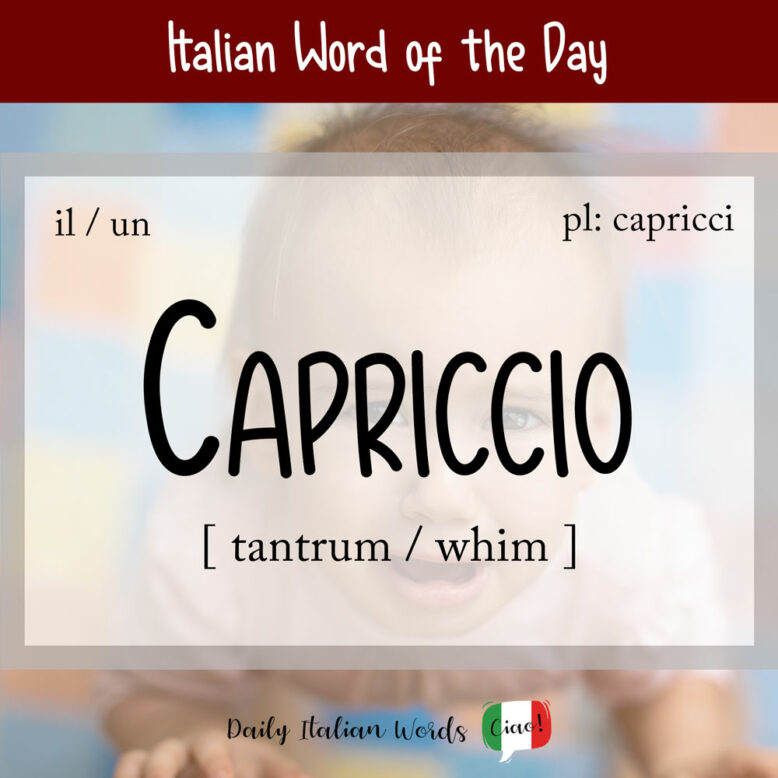The words tantrum and whim both translate as capriccio in Italian. Derived from the antiquated form caporiccio, meaning fright or sudden start, it shares the same origin as the English word caprice.

Capriccio is a masculine noun that takes the following definite and indefinite articles:
- il capriccio = the tantrum
- i capricci = the tantrums
- un capriccio = a tantrum
- dei capricci = some tantrums
In the former sense of the word, it is often used to talk about the temper tantrums of young children. The expression fare i capricci, for example, means to throw a temper tantrum and the phrase Non fare i capricci! (lit: Don’t have a tantrum!) is how Italians tend to say Don’t be naughty!
Non fare i capricci quando andiamo dai nonni!
Don’t be naughty when we go to your grandparents’ house!

The second interpretation for capriccio is a whim, or in other words, a sudden, brief and often bizarre desire or impulse. If you do something a capriccio, for example, you do it based on a sudden urge without careful planning or due to a capricious inclination (i.e. on a whim).
In a romantic context, it can also mean crush / infatuation because these kinds of romantic feelings tend to start without warning and are usually short-lived.
Giacomo non avrebbe tenuto con sé la foto di Maria se fosse stato solo un capriccio estivo.
Giacomo wouldn’t have kept Maria’s photo if it was only a summer infatuation.
Figuratively speaking, capriccio can be used to describe changeable weather, mechanical objects that cease to work as they should, and incomprehensible phenomena.
Il computer sta facendo di nuovo i capricci.
The computer is playing up again.
Last but not least, a capriccio in musical terms is a lively piece of music that is typically short and free in form.
Some terms that are related to capriccio include:
- capriccioso = capricious, fickle, whimsical
- capricciosità = capriciousness, whimsy
- capricciosamente = capriciously, naughtily
Trivia: the feminine capricciosa is the name of a popular pizza in Italy that is prepared with mozzarella, tomato sauce, mushroom, baked ham and artichokes. You may find variations on these ingredients depending on the region.
Heather Broster is a graduate with honours in linguistics from the University of Western Ontario. She is an aspiring polyglot, proficient in English and Italian, as well as Japanese, Welsh, and French to varying degrees of fluency. Originally from Toronto, Heather has resided in various countries, notably Italy for a period of six years. Her primary focus lies in the fields of language acquisition, education, and bilingual instruction.


